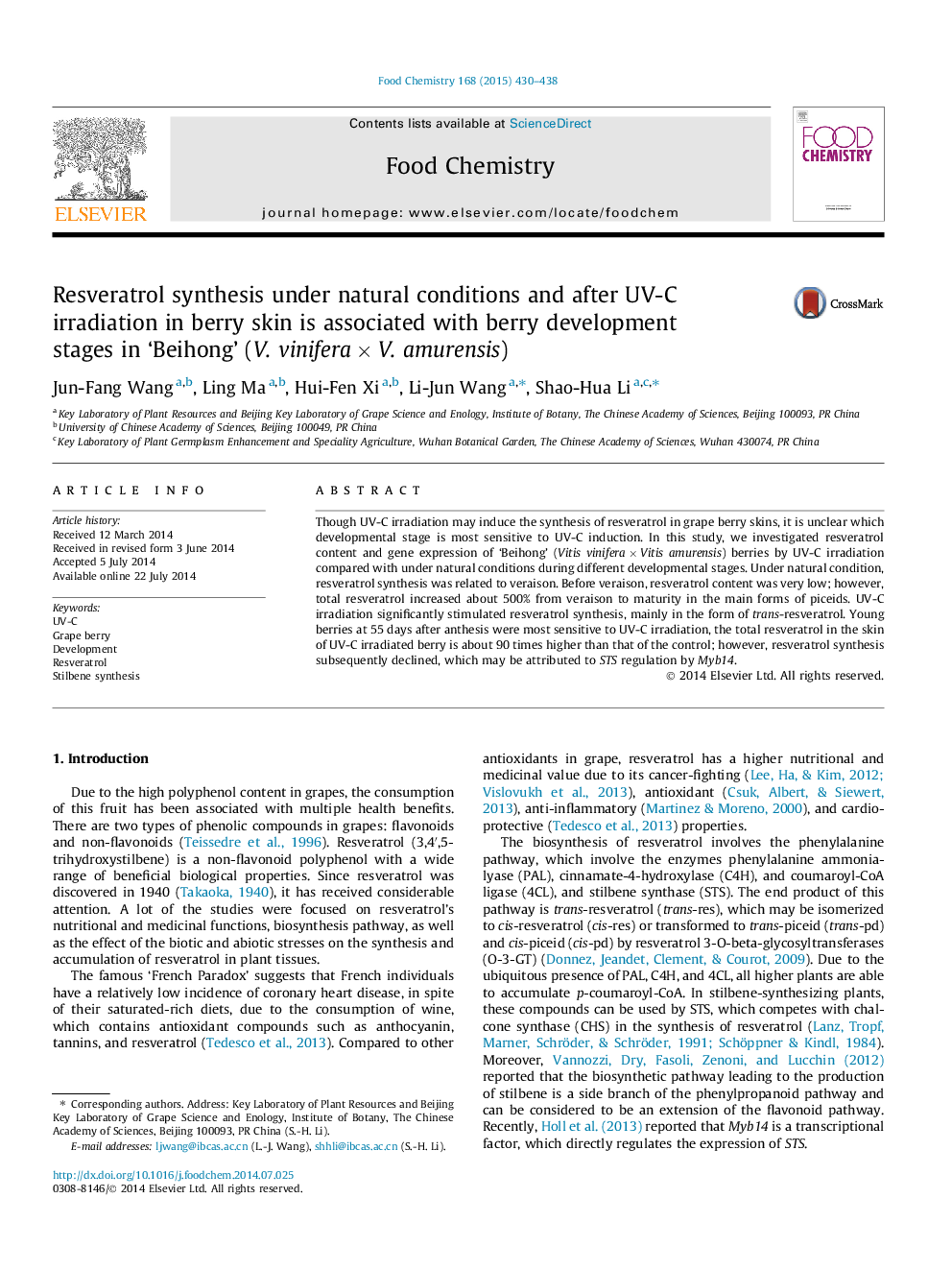| Article ID | Journal | Published Year | Pages | File Type |
|---|---|---|---|---|
| 7595265 | Food Chemistry | 2015 | 9 Pages |
Abstract
Though UV-C irradiation may induce the synthesis of resveratrol in grape berry skins, it is unclear which developmental stage is most sensitive to UV-C induction. In this study, we investigated resveratrol content and gene expression of 'Beihong' (Vitisvinifera Ã Vitisamurensis) berries by UV-C irradiation compared with under natural conditions during different developmental stages. Under natural condition, resveratrol synthesis was related to veraison. Before veraison, resveratrol content was very low; however, total resveratrol increased about 500% from veraison to maturity in the main forms of piceids. UV-C irradiation significantly stimulated resveratrol synthesis, mainly in the form of trans-resveratrol. Young berries at 55 days after anthesis were most sensitive to UV-C irradiation, the total resveratrol in the skin of UV-C irradiated berry is about 90 times higher than that of the control; however, resveratrol synthesis subsequently declined, which may be attributed to STS regulation by Myb14.
Related Topics
Physical Sciences and Engineering
Chemistry
Analytical Chemistry
Authors
Jun-Fang Wang, Ling Ma, Hui-Fen Xi, Li-Jun Wang, Shao-Hua Li,
